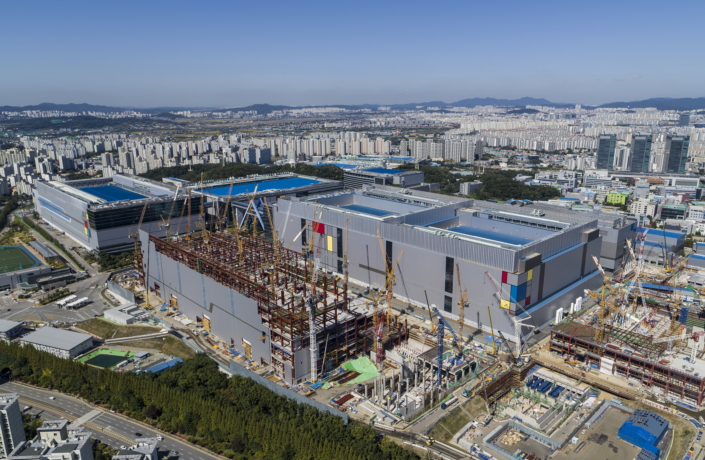 INFRA
INFRA
 INFRA
INFRA
 INFRA
INFRA
Samsung Electronics Co. Ltd. said today it’s starting mass production of semiconductors built with its 7-nanometer Low Power Plus process after finally perfecting the technology.
Samsung’s 7nm LPP process technology is significant because it’s the first in the world to use extreme ultraviolet lithography tools to inscribe circuits onto silicon boards.
The new fabrication process will enable the company to increase the transistor density of its chips significantly while optimizing their power consumption. Furthermore, the EUV process allows Samsung to reduce the number of masks it requires for each chip and to shrink its production cycle.
Samsung’s use of the EUV process is said to be especially ambitious because it’s doing so for some of the most critical elements of its chips, rather than just low-risk features such as contacts.
The company said the EUV process provides a number of benefits over its older FinFET technology, mainly by simplifying the manufacturing process by reducing the number of layers needed on each chip. Samsung claims that its 7nm chips come with up to 20 percent more performance, a 40 percent increase in area efficiency and 50 percent less power consumption.
Another benefit of EUV is it allows for defects to be detected earlier in the fabrication process, Samsung said. The company has built its own proprietary inspection tools that not only detect faults in its silicon, but also enable chips to be corrected or discarded immediately depending on the extent of the fault.
“7nm chips are faster and provide lower power consumption,” said Holger Mueller, principal analyst and vice president at Constellation Research Inc. “So whoever can make those first has a good competitive advantage.”
Samsung isn’t the first chip maker to have perfected the 7nm process, however. Taiwan Semiconductor Manufacturing Co. Ltd. is already mass-producing 7nm silicon, albeit without EUV, and it remains to be seen which can do it better. Still, the development does give Samsung a leg up on another important rival, Intel Corp., which is still stuck with its 14nm process and at least a year away from shipping out its first 10nm products.
The Korean chipmaker said the plan is to create powerful energy-efficient chips for applications such as artificial intelligence systems, autonomous cars, 5G infrastructure and “internet of things” devices. And most of the new chips will likely end up powering Samsung’s own products, Patrick Moorhead, president and principal analyst at Moor Insights & Strategy, told SiliconANGLE.
“Samsung’s biggest issue is that it’s better at being its own manufacturer of its chips than being a foundry for other chipmakers,” the analyst explained.
That means Intel should continue to reign supreme in the data center and personal computer markets for some time yet.
THANK YOU